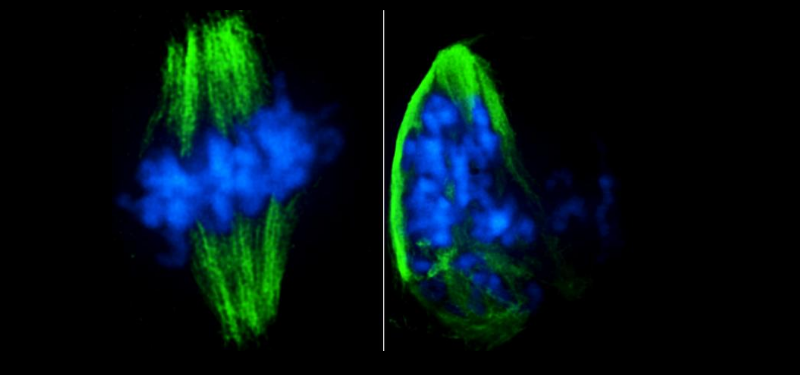Sinai Health study looks at gene’s role in infertility, early menopause

Researchers are learning more about a little-known gene and the pivotal role it plays in female fertility and egg quality.
In a new study out today in Science Advances, researchers from Sinai Health’s Lunenfeld-Tanenbaum Research Institute, University of Cambridge, Washington University, Hospital for Sick Children and University of Toronto looked at a protein that decorates the membrane that borders the cell nucleus called Nemp1 and how it impacts the development of ovaries in a variety of species.
Study co-lead Dr. Andrea Jurisicova, senior investigator at LTRI and associate professor of Obstetrics and Gynaecology at the University of Toronto, said when the gene is inactivated in fruit flies, roundworms, zebrafish and mice, the animals are infertile or lose their fertility unusually early but appear otherwise healthy.
“We showed that without Nemp1, the stiffness of the nucleus is compromised, where the cell’s DNA is organized, causing deformities in the shape of the nucleus and eventual death of cells,” said Jurisicova.
Furthermore, researchers found the female germ line — which produces eggs — is particularly sensitive to loss of Nemp1 protein, as it leads to production of poor quality eggs.
The scientists first examined the germ-line of flies, worms and fish and found defects in sperm and eggs in animals lacking Nemp1. In mice, they focused on defects in eggs produced by Nemp1 mutant mothers.
In those females, the researchers found the envelope that contains the egg’s nucleus — the vital compartment that holds half of an organism’s chromosomes — looked like a floppy balloon.
“This gene is expressed in cells throughout the body, but we didn’t see this floppy balloon structure in the nuclei of any other cells,” said senior author Helen McNeill, a BJC investigator at the Washington University School of Medicine. “It’s so exciting to see that this protein that is present in many cells throughout the body has such a specific role in fertility. It’s not a huge leap to suspect it has a similar role in people as well.”
As part of the research, a team of researchers also worked to identify and study the set of proteins that interact with Nemp1 and identified a genetic variant in a human Nemp1 gene is associated with earlier onset of menopause.
Jurisicova said the team hopes to further study the Nemp1 gene in infertile women, as well in patients with low ovarian reserve to identify additional genetic variants that may contribute to women’s ability to produce high quality eggs.











